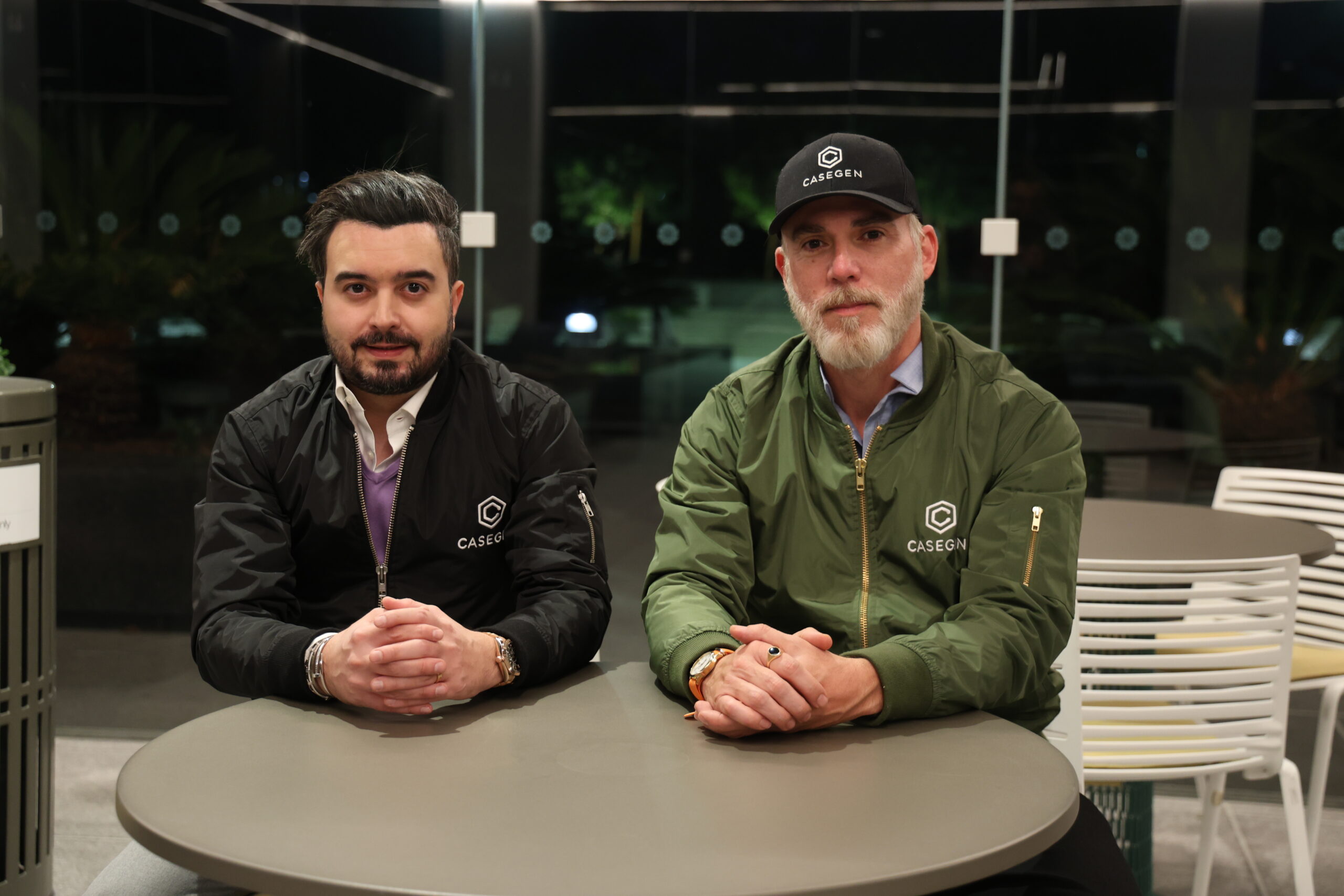CaseGen sets a new engineering benchmark for law firms adopting AI voice agents. We run concurrent call testing and regression testing as a standard simulating thousands of simultaneous calls and replaying past real-world scenarios after every update. This ensures that during major marketing surges like billboards, TV commercials, or paid campaigns, or breaking legal events, lawyers never miss a lead or client call. Competitors rarely test this deeply, leaving firms vulnerable to dropped calls and lost revenue.
Why This Engineering Standard Matters for Law Firms
CaseGen approaches voice AI for law firms differently: with heavy engineering instead of lightweight software shortcuts. In modern legal practices, every call is critical, it’s often the first interaction a potential client has with your firm, and missing even one can mean losing a high-value case or referral.
That’s why we treat concurrent testing and regression testing as non-negotiable. We simulate thousands of calls at once, reflecting real conditions like surges from billboards, commercials, digital campaigns, or viral legal events. After every update, we replay thousands of past call scenarios to ensure no new bug or misrouting slips through.
This isn’t a feature we charge extra for, it’s our standard operating procedure because we know law firms’ calls are mission-critical.
Real-World Stress: What Happens When Calls Surge?
A breaking legal event, or your new campaign, drives a surge in calls.
Imagine this: a high-profile case dominates local headlines. Social media explodes with commentary. At the same time, your firm launches a billboard campaign, TV commercial, or paid digital ads — your phone number is suddenly everywhere. Within minutes, people start dialing.
Ten, twenty, fifty people call your firm in the same hour.
What’s normally a steady stream becomes a flood. Prospective clients, referral sources, even reporters call at once. Many are stressed, some are multilingual, and others are calling from noisy environments like hospitals or courtrooms. Your intake load jumps 500% in minutes.
An untested AI system collapses.
Most AI answering systems aren’t prepared for this:
-
They’ve never undergone concurrent load testing.
-
Delays, dropped calls, or dead air cause potential clients to hang up.
-
Intake questions are skipped or misrouted, losing critical details.
-
Leads vanish and the marketing dollars spent driving those calls are wasted.
How CaseGen Prevents Failures Before They Happen
CaseGen treats law firm calls as mission-critical. Before going live, we run massive concurrent call simulations replicating worst-case conditions:
-
Hundreds of simultaneous calls hitting the system at once.
-
Synthetic AI voices mimicking varied accents, speeds, and emotions.
-
Background noise like traffic, office chatter, or courthouse echoes.
-
Sudden surges triggered by marketing campaigns or breaking news.
By intentionally pushing our systems to the limit, we identify and fix weak points early — guaranteeing lawyers never experience downtime during real spikes.
Regression Testing: Continuous Improvement for Law Firms
AI voice agents constantly evolve prompts get refined, voices improve, features roll out. But every update risks breaking something that used to work: skipping a key intake question, misrouting calls, or misunderstanding legal terminology.
CaseGen’s automated regression testing solves this: after every update, we replay thousands of past call scenarios from real law firm interactions across practice areas like family, criminal, corporate, and estate law. Any failure, even subtle ones, are caught immediately and fixed before a single real client call is impacted.
This means updates improve performance without risking reliability a standard competitors simply don’t maintain.
Why Competitors Can’t Match CaseGen
Most law firms hire multiple receptionists or pay for answering services just to keep up with call volume. The problem is, human receptionists can only handle one call at a time — which means when two or three people call simultaneously, someone is put on hold, sent to voicemail, or worse, abandoned. CaseGen solves this by answering every call instantly, at the same time. Whether it’s two calls or two hundred, our AI voice agents scale without adding headcount or overhead. For firms spending thousands per month on staff or overflow services, this can translate into massive cost savings while actually improving client experience — no holds, no missed leads, and no limit to how many callers you can handle at once.
Most AI answering services aimed at law firms are marketing-first products built on lightweight tech. Their workflow:
-
Build a basic prompt.
-
Test a handful of calls manually.
-
Ship it live and wait to hear complaints.
CaseGen’s workflow is radically different:
-
Heavy engineering from day one.
-
Concurrent and regression testing baked in as the default.
-
Zero-compromise reliability because law firm calls are revenue-critical.
This distinction marketing vs. engineering is why lawyers who depend on client calls choose CaseGen.
Q&A: How CaseGen Ensures AI Reliability for Law Firms
How does CaseGen automate testing at scale?
CaseGen uses AI-powered synthetic callers to simulate thousands of calls simultaneously, recreating the real-world conditions law firms face every day. We generate diverse test scenarios different phone numbers, speaking speeds, accents, and emotional tones to see how the AI responds under pressure. For example, we test what happens if 100 potential clients call at once after a new billboard campaign launches. This ensures the system handles both routine days and extreme surges without delays, errors, or missed details.
What issues can automated tests detect?
Automated testing detects both obvious and subtle failures. For example, if the AI hesitates under heavy load, mishears critical legal terminology (like “trust” vs. “will”), or drops a call entirely, our tests flag it instantly. We also catch softer failures like dead air, awkward pauses, or misrouted calls that human testers might miss. This level of scrutiny is essential because lawyers can’t afford to lose a lead due to small but critical oversights.
How does concurrent testing benefit law firms?
Concurrent testing prepares law firms for real-life spikes in call volume. Whether it’s a viral legal case, a new TV commercial, or a mass tort ad campaign, these moments can create call surges that overwhelm untested systems. By stress-testing under these conditions, we ensure that no matter how chaotic the surge, every caller is answered instantly protecting both your reputation and revenue.
How does regression testing help after updates?
Every time CaseGen updates an AI voice agent whether it’s improving prompts, adding features, or refining voice tone we immediately replay thousands of past scenarios to confirm nothing broke in the process. This prevents issues like missing a key intake question or misrouting bilingual callers. For law firms, this means you always get continuous improvement without unexpected setbacks, something most competitors can’t guarantee.
Why is this level of testing important for every law firm?
Regardless of size from boutique practices to national firms calls are the lifeblood of every lawyer’s business. A missed call means a missed case, referral, or client opportunity. By making concurrent and regression testing our standard, CaseGen ensures your firm operates with enterprise-level reliability, even if you’re a solo practitioner. This engineering-first mindset gives smaller firms access to the same reliability Fortune 500 companies expect.
The Takeaway for Law Firms
When choosing a voice AI platform, law firms should ask two critical questions:
-
“Do you simulate hundreds of concurrent calls before launch?”
-
“Do you run regression tests after every update?”
If the answer is “no,” you’re trusting your firm’s most valuable asset your calls to chance.
CaseGen: Heavy engineering for mission-critical calls. Built by attorneys, trusted by law firms.
|
Header 1 |
Header 2 |
Header 3 |
|---|---|---|
|
Cell 1-1 |
Cell 1-2 |
Cell 1-3 |
|
Cell 2-1 |
Cell 2-2 |
Cell 2- |






